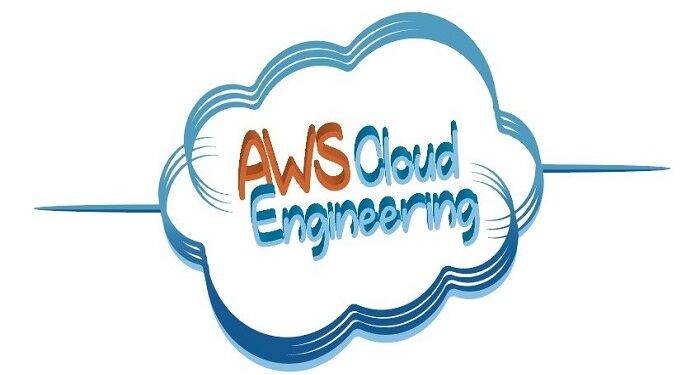AWS (Amazon Web Services) is the largest and most well-known cloud platform at the moment in the present. Launched in 2006, it includes a combination of Infrastructure-as-a-Service (IaaS), Platform-as-a-Service (PaaS), and Software-as-a-Service (SaaS) offerings – 175 full-featured services in all. AWS offers cloud users useful tools, including processing power, database storage, and delivery of content. Find out more about the cloud computing service through this Cloud Computing Course.
Which is the exact description of what is an AWS Engineer?
AWS Engineer AWS engineer is an IT professional who creates enhancements, manages upgrades, and improvements and further enhances and improves AWS’s AWS cloud infrastructure for running apps. The infrastructures include testing environments utilized for production as well as development and testing and development environments. Once we’ve determined the essence of their functions and the role they play it is time to examine the specifics of what they do.
AWS Engineer Roles as well as Responsibilities
What are the qualities that companies seek out in AWS engineers? Keep in mind that not every company or business will need AWS engineers to handle the entire process, and carry out all of the tasks. Expectations may vary based on the size and specifics of your business.
- Responsible for development layout, and development implementation, along with development to expand AWS cloud infrastructure. AWS cloud infrastructure
- Manage the release process, modification, and regulate the configuration of each production system. Modify, control, or let the configurations of each production.
- Control Continuous deployment and integration technique employing servers-based technology
- Collaboration with the engineering and architecture teams to develop and implement easily modified software. Services
- Be sure that your system is protected with the best cloud security solutions
- Stay up to date with the latest technologies or products offered by vendors to figure out the most appropriate one for your company.
- Implement continuous integration/continuous delivery (CI/CD) pipelines when necessary
- Recommendations for the process and improvements to the architecture
- Troubleshoot system problems and resolve issues across all operating systems.
- Conduct preproduction tests to assess the high quality and reliability of a firm’s products or services
The tools used by an AWS Engineer
In this case, we’ll use the terms “tools” and “skills” precisely in the same manner provided they’re compatible with each other, and they’re both part of the equipment and abilities required for your job.
A good AWS engineer needs:
- Experience using AWS (that’s simply ordinary sense)
- Expertise in design and development of web applications built with AWS by using AWS services like EC2, ELB, RDS, and S3
- Experience with the development and maintenance of cloud-based applications
- Comprehensive knowledge of Linux/Unix as well as Windows administration of servers
- Experiences using DevOps applications for cloud environments, including Ansible Artifactory, Docker, GitHub, Jenkins, Kubernetes, Maven, and Sonar Qube
- Experience with setting up and installing servers for different applications, including JBoss, Tomcat, and WebLogic
- An experience by using monitoring tools like CloudWatch, ELK Stack, and Prometheus
- An understanding of writing Infrastructure-as-Code (IaC), using tools like CloudFormation or Terraform
- At a minimum, you need to be familiar with one of the top-rated programming languages that are used in cloud computing currently (i.e., SQL data, XML data, R math, Clojure math, Haskell functional, Erlang functional, Python procedural as well as Go procedural)
- Expertise in troubleshooting as well as a troubleshooting system
- Experienced knowledge of scripting languages as well being a scripting development
- The capability to be an effective part of an organization
- The ability and capacity to educate others about subjects of procedure and technical aspects
- Collaboration and communication capabilities that are extremely efficient
Additionally, the AWS engineer who is working within DevOps will also need to work with:
- Concepts, theories, and concepts, in addition to Actual applications of Continuous Delivery (CD) which require the expertise of tools like AWS CodeBuild AWS CodeDeploy AWS CodeDeploy AWS CodePipeline
- A deeper comprehension of the concept behind automation
AWS Engineer Learning Path
There’s a lot that needs to be learned and mastered however, it’s possible to follow the AWS course which will show you the best course to learn to get to the very top of the list.
Most AWS cloud engineers possess what’s called an Associate’s Degree in Computer Science computing engineering or information technology or any other related technical field. After that, you’ll need to continue your education by completing software development generally in the range of three or 5 months. Certain companies require a minimum of 10 years of relevant data about the development of their systems.
A significant portion that you do in the field that involves the development of software development requires you to work with programming languages such as AngularJS, C++, Java, and Python. Furthermore, you will require an understanding of a wide range of tools and platforms, including Hadoop, Kafka, Kubernetes, Redshift, Scala, Spark, and SQL. It is highly recommended to master these abilities and get experience with DevOps, Docker, and Linux.
Cybersecurity is a concern at moment. Cloud engineers must be knowledgeable about cybersecurity in order to use their skills. Around 40% of IT professionals have been unable to migrate cloud services due to security problems and a lack of understanding of cyber security.
Numerous schools offer courses on all of these subjects however, they’re not available at work. Some continuing education courses are available to fill the gaps in understanding. You can even enroll in classes at night in the event that your job is during the daytime.
What is the AWS Engineer Jobs?
The term “AWS cloud engineer” isn’t clear enough for full complete transparency. There are numerous opportunities for an AWS engineer this is the reason it’s best to narrow down the description of the job to just only a handful of distinct positions. This list will provide a list of the many possibilities for careers engineers working as AWS cloud engineers may decide to explore. The most well-known positions are:
- Back-end developer
- Cloud engineer
- Data engineer
- Data scientist
- The engineer responsible for development operations
- Front-end developer
- Full-stack developer
- Java developer
- .NET developer
- Senior Java developer
- Senior software engineer
- Software architect
- The administrator of the system
- Software engineer
- System engineer
For a thorough overview, here’s a comprehensive list of areas where Amazon AWS jobs tend to be concentrated. This list should give you a sense of the areas in which there are more chances of finding jobs related to cloud around the world:
- Bangalore, India
- Beijing, China
- Berlin, Germany
- Capetown, South Africa
- Dublin, Ireland
- London, UK
- Seoul, South Korea
- Singapore
- Sydney, Australia
- Tokyo, Japan
- Vancouver, Canada
AWS Engineer Salaries Across the Globe
Whoever coined the phrase “Nice work, if you can locate it” must be aware of the salaries for AWS engineers! Engineers from the cloud are, for instance, employed in America for instance. The United States can earn an average annual salary of $126,397.
Based on Glassdoor, AWS wages in India are on average between 1,603,765 and 1,603,765. AWS workers in Ireland will earn an average of 55,581. Japan is predicted to earn $5739,000 on average income. In addition, Amazon Cloud Support Engineers in Australia earn an average of $95446 per year. The AWS certification permits you to be able to pass the CAA C02 exam and permit you to become an expert within Fortune 500 companies.










